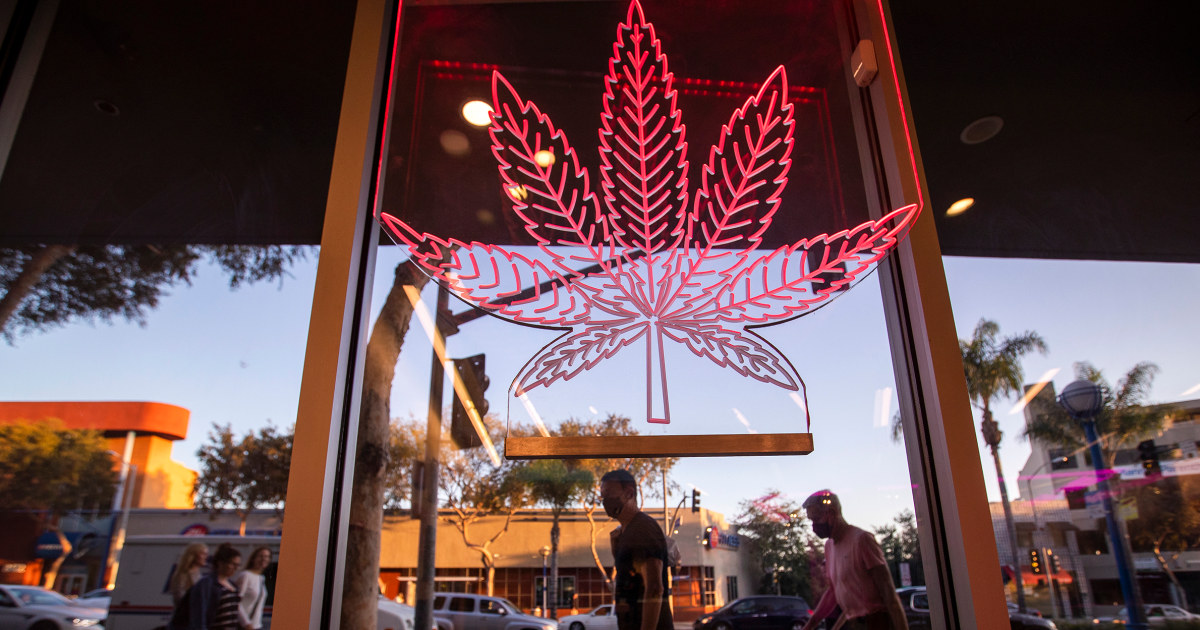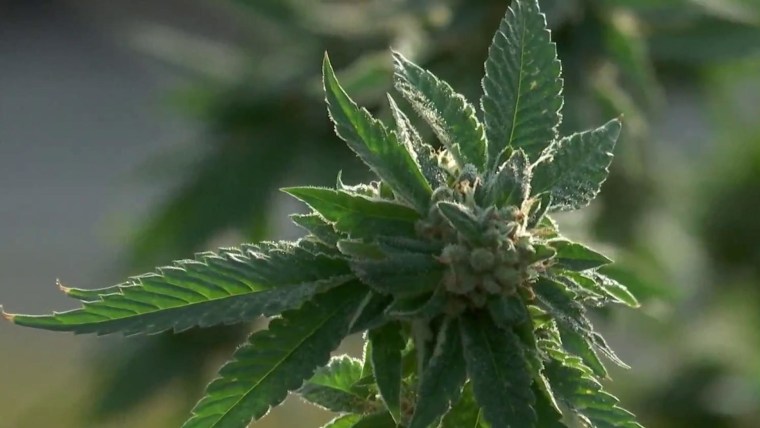LOS ANGELES — Hashish advocates, small farmers and organization house owners called Thursday for an overhaul of the California cannabis tax program as they wrestle to preserve afloat amid soaring working and regulatory charges.
They collected exterior the Point out Capitol in Sacramento to make their case and alert that the field could collapse if ways are not taken quickly.
“We’re in this article nowadays due to the fact the craft hashish marketplace right here in California is in crisis and on the brink of collapse,” explained Amber Senter, a co-founder and the executive director of Supernova Women, a nonprofit firm that will work to make chances for folks of color in the field.
“Not only has the point out fallen quick in claims to right the wrongs inflicted on Black and brown communities impacted by the war on medicines, but it has also perpetuated regressive war-on-medicines 2. insurance policies by oppressive taxation, which have to finish,” Senter stated in a assertion. “This is our cry and plea for enable.”
Senter and other people are inquiring the Legislature and Gov. Gavin Newsom to reduce the cultivation tax and repeal the state’s excise tax for social equity retailers.
Thursday’s rally designed on momentum established by industry leaders who also demand that California improve the way it taxes cannabis. Final thirty day period, marijuana organizations warned Newsom in a letter that fast tax cuts and a speedy enlargement of retail retailers were being necessary to steady an ever more unstable marketplace shaken by illicit sellers and growers.
Far more than two dozen cannabis executives and legalization advocates signed the letter soon after years of issues that the heavily taxed marketplace is unable to compete with the popular unlawful economic system, which provides much decrease purchaser rates and has double or triple the sales of the lawful current market.
Proposition 64, which voters accepted in 2016 and legalized hashish, “was not passed just to elevate tax revenue, but to conclude the illicit sector, secure community overall health and protection, and build an accountable legal business,” the executives stated in the letter. “Yet currently, 4 several years after the commence of legal gross sales, our industry is collapsing and our world management and legacy is at the brink of disappearing for good.
“The prospect to make a strong authorized current market has been squandered as a final result of excessive taxation,” they continued. “75% of cannabis in California is consumed in the illicit market and is untested and unsafe.”
The state’s tax system has burdened small corporations from the start, operators and industry experts say. As of Jan. 1, cannabis is taxed at a flat rate of about $161 a pound, on top rated of a 15 % excise tax, as perfectly as neighborhood cultivation, manufacturing, processing, distribution and retail taxes.
Newsom, who supported Proposition 64 as lieutenant governor, signaled this week that aid could be on the way. Unveiling his 2022-23 finances proposal Monday, he reported he supported hashish tax reform and prepared to do the job with the Legislature to modify policy.
“It is my objective to glance at tax plan to stabilize the market,” he stated. “At the same time, it is also my aim to get these municipalities to wake up to the chances to get rid of the illegal current market, the illicit industry, and provide assistance in a regulatory framework for the authorized market place.”
Assembly member Mia Bonta, a Democrat who signifies the japanese San Francisco Bay spot, said at Thursday’s rally that reforming the cannabis polices is about making sure social justice, equity and illustration in an marketplace that has been dominated for a long time by white adult males but has harmed predominantly Black and Latino folks.
Various cannabis corporations in Bonta’s district had been robbed at gunpoint in November, dropping about $5 million in the times primary up to Thanksgiving. Henry Alston, a co-founder and the main operating officer of James Henry SF, a cannabis company in Oakland, mentioned his enterprises have been damaged into five situations in the spate of robberies.
“They took everything,” he stated. “They dragged our protected with our tax dollars correct out the entrance door.”
Casey O’Neill, the proprietor and operator of Content Working day Farms in Mendocino County, said he experienced the drug war firsthand as a legacy grower who uncovered the trade from his mother and father. In 1985, legislation enforcement officers “stormed our property for 30 vegetation,” forcing his family to flee for basic safety, he mentioned.
“My expecting mother escaped with me and my brother into the creek mattress to the north,” O’Neill explained. “The trauma of that working day shaped some of my earliest reminiscences.”
Much more than 30 decades later on, O’Neill sees parallels between California’s highly controlled hashish industry and the prohibitionist attitudes of his youth. Large taxes, he said, stop tiny operators from joining the marketplace and exclude the communities toughest strike by the war on medications.
“The technique is not operating,” he explained. “The unfair taxation spells the stop of the dream for so quite a few.”


